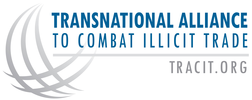Definition of illicit trade
|
For the purpose of this survey, “illicit trade” means any practice or conduct prohibited by law relating to the production, shipment, receipt, possession, distribution, sale or purchase of goods or services, involving a transnational element, including any practice or conduct intended to facilitate such activity. |
|
More detailed sector specific definitions are presented below: Illicit trade in agrochemicals include: obsolete or banned unauthorized pesticides; untested, unregulated, or unlicensed pesticides; unauthorized imports; counterfeit and fake pesticides; relabeled or mislabeled pesticides; and refilled pesticides containers. Illicit trade in the agri-food sector comes in many forms and manifestations, ranging from economically-motivated adulteration (EMA), commonly referred to as food fraud, to large scale smuggling of agriculture products. Food fraud is the intentional sale of sub-standard food products or ingredients for the purpose of economic gain. It impacts many different types of foods, including meat, dairy products, fish and seafood, fruit juices, oils, honey, spices and wine. Common types of food fraud include substitution or dilution of an authentic ingredient with a cheaper product (such as replacing extra virgin olive oil with a cheaper oil), flavor or color enhancement using illicit or unapproved substances (such as unapproved dyes), and substitution of one species with another (such as the European horse meat scandal). Illicit trade in alcohol encompasses a wide variety of illegal activity that is typically characterized as:
Counterfeit and Piracy:
Illegal logging and illicit timber trade: The International Union of Forest Research Organizations (IUFRO) broadly defines illegal logging and related timber trade as including “all practices related to the harvesting, processing and trading of timber inconsistent with national and sub-national law.” This definition also may be extended to include violations of ratified international treaties and conventions. Such practices include, for instance, operating under a license that has been obtained illegally (e.g., involving corruption or collusion), logging in protected areas, exceeding permitted harvest quotas, processing logs without the necessary licenses, tax evasion and exporting products without paying export duties.” The definition also encompasses “related trade” when timber-based products are exported or imported in contravention to import or export laws. Illegal, unregulated and unreported fishing (IUU) refers broadly to fishing activities that contravene regional, national or international fisheries conservation or management measures, or occurs outside the reach of these laws and regulations. IUU consists of the following distinct but related elements:
WHO definition of illicit pharmaceuticals:
Illicit trade in tobacco generally includes “any practice or conduct prohibited by law which relates to production, shipment, receipt, possession, distribution, sale, or purchase of tobacco products including any practice or conduct intended to facilitate such activity". Trafficking in persons: According to the UN Protocol to Prevent, Suppress and Punish Trafficking in Persons, Especially Women and Children, trafficking in persons is defined as ”the recruitment, transportation, transfer, harboring or receipt of persons, by means of the threat or use of force or other forms of coercion, of abduction, of fraud, of deception, of the abuse of power or of a position of vulnerability or of the giving or receiving of payments or benefits to achieve the consent of a person having control over another person, for the purpose of exploitation. Exploitation shall include, at a minimum, the exploitation of the prostitution of others or other forms of sexual exploitation, forced labor or services, slavery or practices similar to slavery, servitude or the removal of organs.” |
